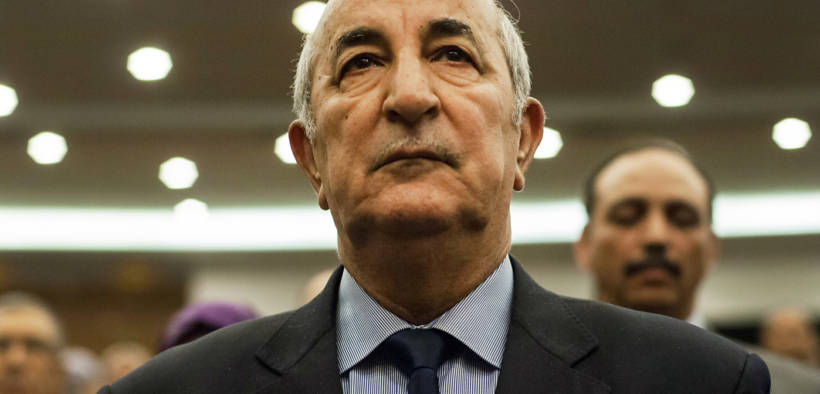Protests Break Out in Algeria Over ‘Sham’ Presidential Election

“We have toppled Bouteflika, and we will topple all the system’s men. We won’t give up.”
Crowds of protesters took to the streets in the Algerian capital of Algiers on Friday, upset over the results of Algeria’s Thursday presidential election, which brought to power 74-year-old veteran politician and former Prime Minister, Addelmadjid Tebboune.
Tebboune won 58.15 percent of Thursday’s vote and will serve as the president of Algeria after serving as the Housing Minister from 2012 to 2017 in the government of former Algerian president, Abdelaziz Bouteflika, who was forced to step down in April of this year under mass pressure. Tebboune also briefly served as Prime Minister from May 2017 to August 2017 before being dismissed by Bouteflika.
Shortly after the results were announced, large crowds in the heart of the Algerian capital were seen protesting and chanting slogans opposing Tebboune’s win.
According to Al Jazeera, protesters chanted that the results were a “sham” and the elections “rigged” because all five presidential candidates had ties to the former president and the Algerian elite.
“Tebboune is worse than Bouteflika. He’s known for being one of the thieves,” Meriem, a 31-year-old civil servant, told AFP news agency.
“We did not vote and we will not back down,” said Meriem in reference to Algeria’s months-long protests demanding social justice and the end of corruption.
Tebboune’s closest opponent, Abdelkader Bengrina, came second with 17.38 percent of the vote while former Prime Minister Ali Benflis was third with 10.55 percent. Former Minister of Culture Azzedine Mihoubi came in fourth place with 7.26 percent. Abdelaziz Belaid, the head of the el Moustakbal Party, obtained 6.66 percent.
According to state media, around 40 percent of eligible voters participated in Thursday’s vote in spite of protesters’ calls for a boycott of the elections.
End of Bouteflika’s 20 Year Reign
In April of this year, mass protests ripped through various districts of Algeria, ending the 20-year-long rule of 82-year-old former President Abdelaziz Bouteflika. However, following Bouteflika’s resignation protesters continued to stage weekly Friday protests demanding a handover of power from the old political elite to a new generation.
Riad Mekersi, a 24-year-old who has participated in Algeria’s protests since February, told Al Jazeera the protest movement would continue.
“We have toppled Bouteflika, and we will topple all the system’s men. We won’t give up,” he said.
Background
Algerian protests first began in February of 2019, and are said to be the largest and most persistent since 1962, when Algeria gained independence from France.
The demonstrations were sparked after then-President Abdelaziz Bouteflika announced he would once again run for election after having spent two decades in power. Bouteflika had served as the Algerian President since 1999.
In the second decade of his rule, Boutelfika’s health was unwell and he rarely appeared in public after a stroke in 2013. Bouteflika’s presidency was seen as increasingly run by an elite group of business leaders and his younger brother Sid.
Algerian protesters insist that the country’s oil-rich resources have been robbed and the people have been excluded economically and politically. Bouteflika’s resignation and now the election of Tebboune, a politician with strong ties to Bouteflika, have done little to quell protesters’ frustration.







